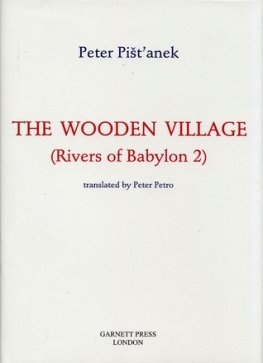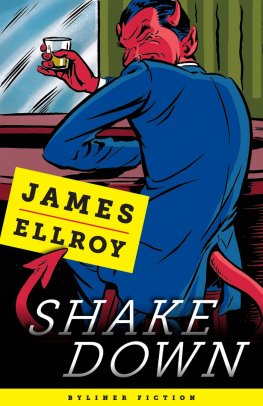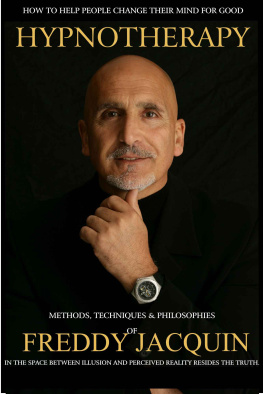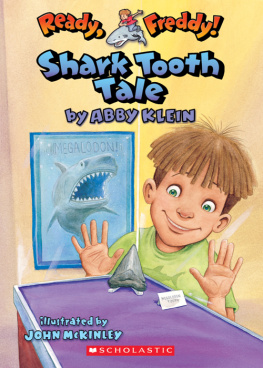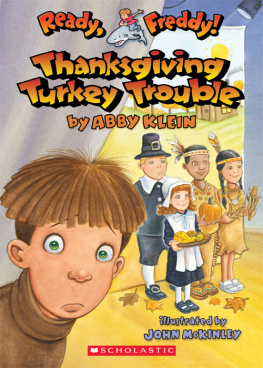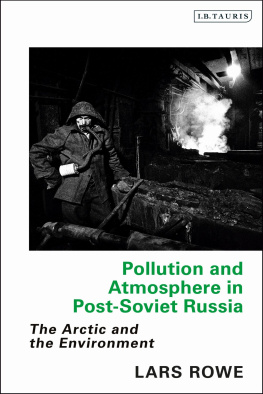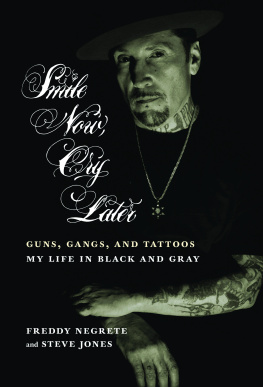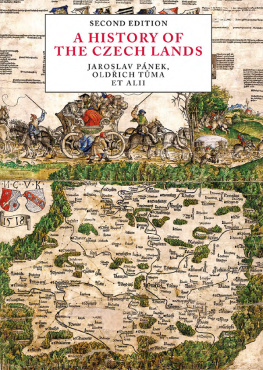Peter Pianek
The End of Freddy
Introduction Peter Pianek (pronounced Pishtyanek) is one of the most talented prose writers to appear after the fall of communism in Slovakia. He was born in 1960 in Devnska Nov Ves, a village now swallowed up by Bratislava, the capital of Slovakia. He enrolled in Bratislavas Academy of Performing Arts, but did not graduate. He was also a drummer in a very well known rock group. At the end of the 1980s he began to publish in the literary monthly Slovensk Pohady (Slovak Views). His breakthrough came with Rivers of Babylon (1991), a novel that caused a sensation and catapulted him into fame. That novel was the first part of a trilogy (now all published by the Garnett Press in English), followed by The Wooden Village and this novel, The End of Freddy. Since the end of the 1990s Peter Pianek has worked for advertising agencies and radio and edited an influential Internet magazine Inzine. He has also become an expert on brandies and whiskies.
Pianeks reputation is assured by originality, craftsmanship and imaginative inventiveness. The End of Freddy, which Pianek declared to be his swan-song, is a magnificent finale to the trilogy: the scene now extends from the earlier novels Bratislava and its environs to Prague and Russias Arctic North, and to the fictional, but only too real, post-Soviet Khanate of Junja, where descendants of Slovak slaves rebel against their rulers, and the Czech state seizes its chance to acquire great power status.
The stoker turned gangster Rcz from the earlier Rivers of Babylon novels continues to grow in monstrous stature, just as the car park attendant turned porn-film scriptwriter Freddy Piggybank achieves unexpected glory. A host of new characters, from the primitive Junjans with their unpronounceable language, to a happy band of Czech naval officers, gives Pianeks novel a Dickensian richness. To the ruthless intrigues of individuals is added a wide-ranging and convincing account of rebellion and civil war. The black irony of the earlier novels is, if possible, even darker, but its Czech scenes bring in positive characters and an affectionate tone, new to his readers.
The original novel switches with virtuosity from Slovak to Czech whenever the action demands. The translator and editor have decided to render the difference (the two languages differ little more than Edinburgh Scots from London English) not by writing different forms of English (which would have had undesirable side-effects), but by printing what was originally written in Czech in the more imperial Garamond typeface.
Some guidance for the British reader
Time and place
The novel is set in the mid-1990s, when Czechoslovakia has split into two states, and Slovakia seems an anything-goes playground for mafias and corrupt politicians, while the Czech state, now a Kingdom in the novels imaginary world, pursues a more ambitious role in Europe. The fictional Junjan Archipelago lies beyond the Arctic Circle of the Russian mainland and, in shape, seems very like the Shetland Islands, magnified by ten and rotated 90 degrees.
Currency
The Slovak and Czech crowns were then worth about 50 to the pound.
Some characters and how to pronounce their names
We keep Slovak and Czech spellings of characters names, but here is a guide to a few more problematic and important ones. (Junjan names, given the language Pianek has invented for them, will defeat even the most smooth-tongued linguist.) All Slovak and Czech names are stressed on the first syllable:
Rcz, head of Slovak mafia pronounce as Rahts
Kube, Czech naval officer Koobesh
Menek, Freddy Piggybanks real name Meshtyanek
Geo Todor-Lan-Dolniak, Junjan Slovak rebel pronounce as
Gelyo Todor-Lachnee-Dolnyak
Mozo, ex-secret policeman Mozogne [n as in Boulogne]
Peter Petro and Donald Rayfield
Parents hearts are with their children,
childrens hearts are in the taiga.
Junjan Slovak proverb
At this point my much respected readers should be asked if theyve ever heard of a gentleman called Rcz. Of course, this is purely a rhetorical question, because if the reader in his boundless kindness has already reached for this modest book, then the author will not be presumptuous in assuming that the name of Rcz is not totally unfamiliar to the reader.
This literary heros faithful supporters and admirers will certainly be pleased to be told that, in my imagination, he is still having an excellent time. His hotels, restaurants, pizzerias, and casinos prosper just as they did in previous Rivers of Babylon books. He is doing equally well in other business activities. Since he is an influential man and knows how to win over similarly influential people, he has managed to privatise successfully some lucrative businesses. Take, for example, the once famous Stupava brewery that was recently going broke. Rcz bought it for peanuts and everybody thought that he was going to asset-strip it. But not Rcz. Not this time. Beer, unlike banking or insurance business, really amused him. He didnt strip its assets: on the contrary, he surrounded himself by experts and invested in new technology. The quality of Stupavar 11, once so popular, went up. It won a prize at the Agrokomplex Fair and even got a gold medal at the Munich Beer Festival. Using sophisticated media campaigns he taught people how to drink Stupavar. And their new product, the dark beer Mast 16? It flies off the shelves even in the Czech lands. And that is, as they say, something.
Rcz is no great beer expert. When he needed experts, he bought them. He doesnt drink much beer. He watches his weight. The slightest hint of a paunch is quickly dealt with in his home fitness room. He prefers good whisky, the best. He has been faithful to the Chivas Regal brand for many years, but wont say no to other reputable brands either.
Its not only Scotland where they know how to distil a good whisky! Not just Heevash Reygahl! he remarks and taps a bottle labelled Single Malt. Malta, too! This Maltese one is quite good!
Lately, hes acquired a taste for cognac. If you want to please him, give him a bottle of XO. Hes sure to appreciate it.
Someone once brought him a bottle of a valuable old Armagnac. Rcz thanked him, so as not to offend the donor, but secretly gave the bottle to his chief bodyguard, Mozo. Rcz drinks only French cognac! he declared condescendingly. Armenian cognac, from what used to be Russia, is only good for ex-secret policemen.
Rcz never refuses a good bourbon, either. It doesnt always have to be just Scottish or Maltese whisky, he says. Even the French can make a good one. Their bourbons not bad at all.
So much about Rczs consumer habits.
He enjoys living in the luxury villa above the city. Hes not often to be found there, however. Youre more likely to find him in the Hotel Ambassador Rcz, where he has his office.
If he manages to get home early occasionally, he devotes himself to his family. Its his temple and his refuge in the rough seas of the mundane duties and worries of a major businessman and a man of power. His beautiful, intelligent wife Lenka has borne him two sons: the older, Karol, and the younger, Attila. The boys are bright; they study well. Next year, Karol will go to an lite boarding school in Great Britain.
Karol doesnt like the idea. His friends are here, and he can brag in school about his father. In England, theyll all be like him. Maybe hell turn out to be the poorest one of all.
In a moment of weakness he confides in his father.
Rczs eyes almost pop out of his face.


